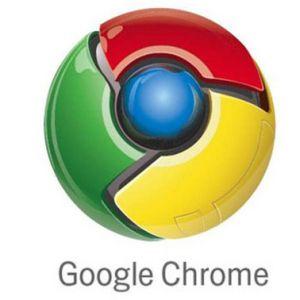
Is Google's Chrome OS a Threat to Free Software?
Google last week announced the existence of a project that will bring its own operating system to netbook computers in the second half of 2010. The Google Chrome OS, which appropriately shares a name with the company's infant web browser, will be optimized for cloud computing (running applications online, rather than from locally installed software). But while the Chrome OS itself will be open sourced later this year, web applications like Google Docs and Facebook sometimes don't even allow users ownership of their data, let alone the source code. Like Microsoft before it, Google has the strength to force industry-wide changes, and if it pushes users towards closed network services, we might all lose.
Having tested the waters with its mobile OS, Android, Google is plunging into the desktop environment—territory Microsoft has dominated for two decades. Google chose the name Chrome very deliberately. They don't fear consumers' confusion between their operating system and their browser. By building a new, minimal OS on top of the Linux kernel, the primary application of which will be the Chrome browser, Google is intentionally eliminating the distinction between the two products. In their own words, "It's our attempt to re-think what operating systems should be," and it's the first step in their strategy to move users into a primarily network-hosted operating environment.
Much like Microsoft, who muscled Windows XP onto netbooks in the past year, Google's tremendous user base and market share puts them in a position to force changes and shift the entire industry, changing users' behavior along with it. Google has said that in Chrome OS, "most of the user experience takes place on the web." Such a platform with little functionality outside the browser will encourage users to adopt network services.
With an open source OS like Linux and free open source software like Firefox, Thunderbird, OpenOffice.org, and Audacity, users have the option to operate in a completely free environment. However, network services often run on proprietary code that is never distributed to the user, let alone open to him. In many web applications, users have no access to code, and even often have limited access to their own data.
Speaking at the LibrePlanet free open source software conference in Boston this past March, programmer and free software activist Mako Hill told the audience, "Increasingly, people are using software they don't have access to. They're using software they can't change and can't control. [...] This represents an important shift between users and their software." It's a shift in control over one's private data away from users and to service providers.
So although switching away from Microsoft's proprietary Windows OS or Apple's OS X to the open source Google Chrome is a move towards free software, by compelling users to move their data and their computing off their own devices and software, and onto closed network services, the Chrome OS ultimately threatens to reduce users' computing freedom.
Opening the Cloud
Understanding the threat to free computing, several groups have released guidelines for and are working towards opening up software as a service. First among them, the GNU Affero General Public License, patches a loophole in the GPL that allows one to host GPL licensed works online without providing access to the source code. The GPL requires source code and documentation to be distributed with software, but because web applications don't need to be distributed in the first place, hosts may be exempt from GPL requirements. The AGPL is compatible with the GPL and requires providers to give users access to source code of network services.
Released a little over a year ago by the Autonomo.us working group at the Free Software Foundation, the Franklin Street Statement makes suggestions for creating what they call "free services:"
- Use the AGPL
- Develop distributed software and data deployment
- Allow users free access to software customizations
- Users should control their own data and be able to move it to other services
The relatively recently released Open Cloud Manifesto is a short document that, like the Franklin Street Statement, sets loose guidelines for creating an open cloud computing environment. While it clearly expresses the need for open standards, data portability and access to user control, it lacks depth and details.
Free (as in freedom) access to network services software will be an increasingly important issue for everyday computer users as more people relinquish control over their data and computing environments to the cloud. A free OS like Chrome may seem to benefit the free software movement, but as it pushes users to adopt software as a service, Google's model will challenge the open source community. Guidelines and suggestions like the Franklin Street Statement and Open Cloud Manifesto are a good start, but unless developers produce compelling open services to challenge the popularity of proprietary ones, users will lose out in the end.

